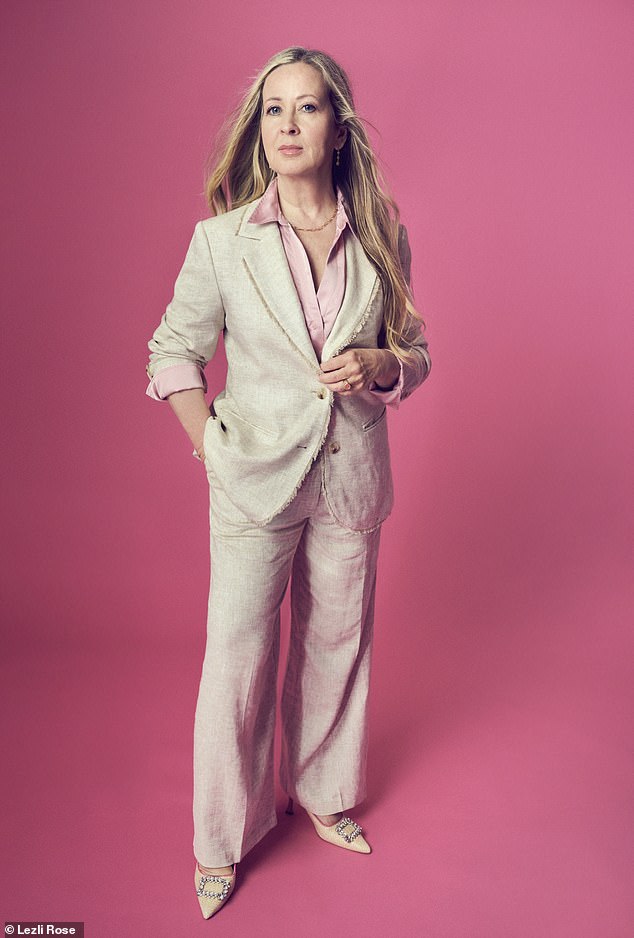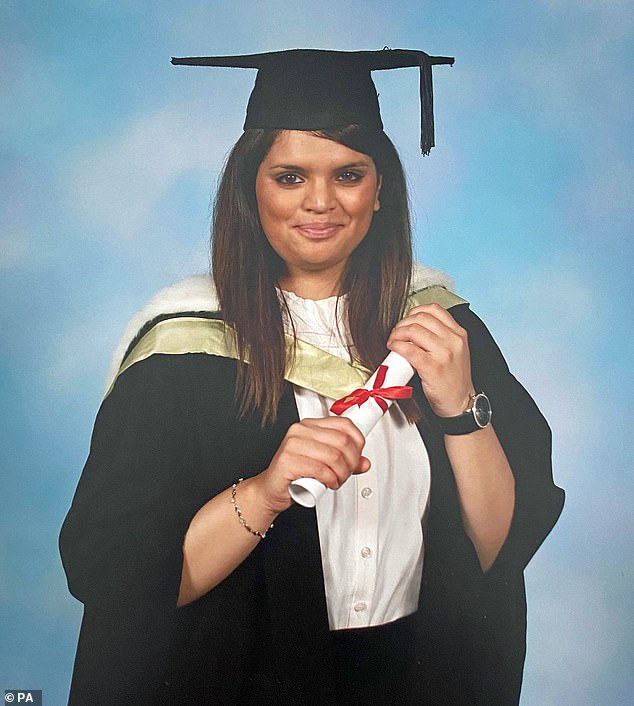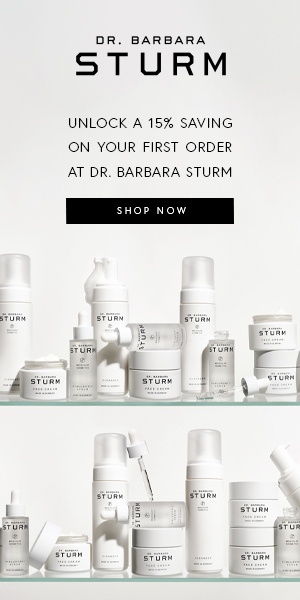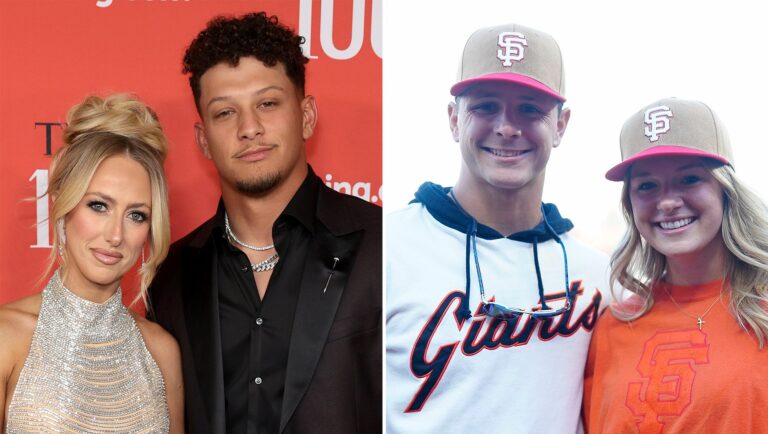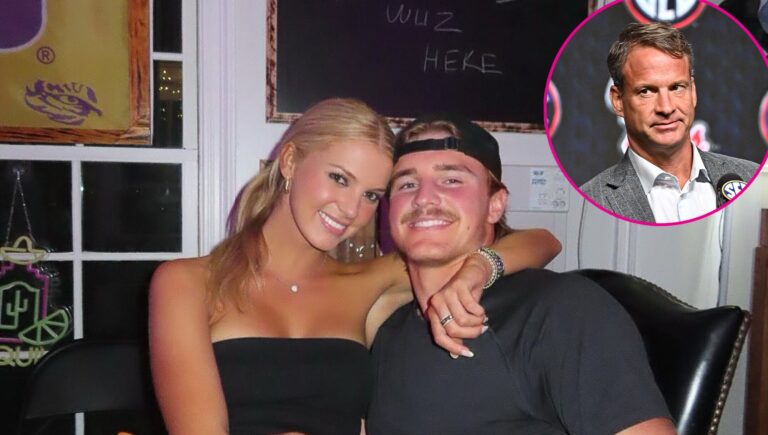Last December, my husband Peter and I were leaving an Italian restaurant in London‘s Notting Hill when the receptionist glanced into our son’s pram and remarked: ‘How lovely that you get to spend time with your grandchild at Christmas.’
She meant well – of course she did – but the comment hurt me profoundly. It wasn’t the first time it had happened, and Peter patiently put her right, saying: ‘It might not seem obvious, but we’re his parents.’
She was most apologetic and looked embarrassed, but I can understand the confusion: I’m 56 and Peter is 58, while our son, Lewis, is just two, making us considerably older than most parents of toddlers.
But even though I understand the mistake, it’s still painful because I don’t want our son growing up feeling different or self-conscious about our age. Sometimes when it happens, it’s easier to keep quiet. Just last week, an older man in the playground said to Peter: ‘I love bringing my little grandson to the park, don’t you?’
On that occasion, Peter just nodded and replied, ‘Yes’. We couldn’t be bothered to explain.
For sometimes, when we do tell people that we are, indeed, the parents of this little boy, you can see their thoughts heading down another, uncomfortable path.
They assume that to have had a child in my 50s, I must have used a surrogate or an egg donor. This can take us into controversial territory, with questions over exploitation and the ethics of putting a price tag on a younger, often financially desperate, woman and her womb simmering behind their smiles.
There have been several examples of celebrities, including Naomi Campbell, who have become mothers in their 50s using a surrogate, leading to a tirade of criticism – not least for creating an unrealistic, and possibly dangerous, expectation that age is no barrier to motherhood.

Monica Kranner had her baby boy aged 54. Despite using IVF, her child is 100 per cent genetically hers and her husband’s
Yet people are even more surprised to learn that was not the case for Peter and me. I carried and gave birth to Lewis myself at the age of 54, and even though we used IVF, he is 100 per cent genetically ours, having been conceived using one of my eggs and Peter’s sperm.
What makes him even more special is that the egg from which his embryo grew was retrieved when I was 52 – positively geriatric, in fertility terms. After all, the average age for menopause is 51, though I didn’t experience it until I was 55.
When we conceived Lewis, via IVF, I was told my chances of a successful pregnancy were just one per cent. I remember telling the fertility doctor: ‘A one per cent chance is all I need.’
Sadly, even knowing that Lewis is our own child, carried by me, people still judge my decision, arguing that ‘at my age’ it’s unfair to have a child.
They point out that by the time Lewis is 18, I’ll be 72 and Peter will be 74. Most people can’t imagine running around after a boisterous toddler – and later an angsty teenager – in their retirement years, and question whether we’re up to the job.
Yet what they don’t know is that Lewis came to us following more than a decade of trying to conceive, and seven devastating miscarriages. Anyone who has ever experienced the complete emotional devastation of losing a baby would know not to judge us for continuing in our desperate bid to have a baby, no matter our ages.
I wouldn’t have qualified for IVF on the NHS, which has an upper age limit of 43, due to the potential risks to older mothers, including gestational diabetes, high blood pressure, and the increased likelihood of birth defects. Even private UK clinics would have tried to persuade me our only hope was using a donor egg.
However, the clinic in Bilbao, Spain, where we decided on our final roll of the dice, simply accepted my decision that, if at all possible, I wanted the child to be biologically mine, so was willing to take my chances with my ageing eggs. I know many people in my situation would have looked into using a donor, or even adoption, questioning why it was so important to me to have that genetic link.

Monica with her son Lewis, who she had after more than a decade of trying to conceive
Yet I had a strong sense, despite all the loss and heartache, that one day I would have a biological child.
As a London-based nutritionist and mindset coach who travels abroad to meet clients, my life has always been busy. I didn’t meet Peter, who runs an advertising agency, until I was in my late 30s.
I knew I wanted children but, somewhat naively perhaps, I didn’t feel there was any rush and, although it may sound old-fashioned, wanted to be married first.
However, I was 42 (and not yet married) when I conceived – naturally – for the first time. Although we hadn’t been trying, I felt incredibly sad when I miscarried 11 weeks later.
We then decided to get married – which we did in December, 2012 – before trying again. And we were elated when I became pregnant soon afterwards, then devastated once again when that pregnancy also ended in miscarriage at ten weeks. Despite continuing to try, we never conceived naturally again.
So, with UK clinics not being an option, in 2014 when I was 45 we dug deep into our savings and I registered with a clinic in Vienna, Austria, where we were advised to try intrauterine insemination (IUI).
Timed to coincide with ovulation, Peter’s sperm was placed directly into my uterus and, two weeks later, a test confirmed the wonderful news that I was pregnant. However, our joy turned to renewed despair when, a few weeks after that, I lost the baby.
Doctors recommended that the next stage should be IVF, which confused me at first, because my issue didn’t seem to be with conceiving, it was getting beyond the first trimester. Even then, the odds were still very poor – just one per cent.

Monica suffered immense heartache after having several miscarriages
I realise many would decide not to spends tens of thousands of pounds of their hard-earned cash for those odds, but by now there was literally nothing as important to me as the overwhelming urge – that existed in every fibre of my body – to be a mother.
I also had an unshakeable belief that it would happen, that one day I would cradle a baby who was a perfect blend of Peter and me. Sadly, while the two rounds we underwent at that clinic both resulted in pregnancies, again I miscarried shortly afterwards. I cried so many tears.
The Austrian doctors strongly advised against using my own eggs for another round, as I was by then 50. I could have saved a lot of money, time and heartache by giving up at this point, but this was not about what was rational – I was driven by emotion.
Peter didn’t like seeing me suffer, however he knew how important motherhood was to me and continued to support me through all the heartache. So, we did our research and found the clinic in Bilbao where gynaecologists were happy to support my choice to try again using my own eggs.
However, adding frustration to my desperation, the pandemic then hit. I was 52 when we were finally able to fly to Spain to try again in late 2021.
Incredibly, four of my eggs were successfully retrieved and, once fertilised with Peter’s sperm, each developed into healthy embryos. Given my age, and the additional strain a multiple pregnancy would put on my body, I was advised to have just one transferred, while the other three went into deep freeze.
Over the next year we had two transfers, two positive pregnancy test results and then two predictable, but devastating, losses.
The small circle of friends who knew what we were going through were supportive, sending flowers and cooking meals. However, a few began gently to suggest that a life of travel and fancy dinners might be a pleasant, less stressful alternative to pregnancy and child-rearing at this stage of life.
But I didn’t agree. Call it stubbornness or bloody-mindedness, I clung to that minuscule hope of motherhood. So, aged 53, I underwent a third transfer at the Bilbao clinic.
The joy of a positive pregnancy test had long since been replaced with anxiety, so when it came in November 2022 there was no celebration, just the prospect of weeks of nervous watching and waiting. But we could hardly believe it when, for the first time ever, I made it to 14 weeks – when a scan revealed I was carrying a boy. We were thrilled but didn’t tell anyone, not even family, as it would have felt like jinxing the pregnancy. I was seven months gone when we finally shared our news.
I was given every test there is – including to check for chromosomal abnormalities – monitored and scanned monthly and, thankfully, all was well.
Doctors were, however, concerned when I developed gestational diabetes and high blood pressure, both of which they put down to my age. Although I didn’t need medication, I was given diet advice and told to rest.
My obstetrician insisted on a caesarean, two weeks before my due date. By then, aged 54, it would be safer than going to term and delivering naturally. I was still so fearful of tempting fate that it wasn’t until just two weeks before the scheduled caesarean that I finally plucked up courage to buy all the essentials for a newborn: pram, car seat, muslin cloths.
It’s a good job we went shopping when we did as my contractions started a week later, and I was rushed to hospital for my caesarean. As the midwife held Lewis aloft for me to see for the first time, I fell completely and utterly in love.
I couldn’t believe that this 6lb 3oz baby, with his tuft of dark hair like his dad’s, and big eyes like mine, that I had wanted so desperately and gone to such great lengths to have, was finally here.Within two hours Lewis was feeding from my breast and, despite the discomfort of the caesarean, I’d never experienced such joy.
Now aged two, Lewis is a healthy, happy boy for ever on the go, who loves cars and trucks and chats away in English and my native German.
Of course, in our 50s, Peter and I are exhausted at the end of every day, however I think that can also be true even for parents in their 20s.
I’m aware Lewis will still be a teenager when we’re in our 70s, which might be tiring, emotionally at least. While that prospect doesn’t worry me, I am concerned about him getting teased, or even bullied, at school because of our age. I can only hope his strong-minded, stubborn streak helps him withstand that – and that the other, younger mums at the school gates won’t be judgmental towards me, either.
I want to be there for every stage with Lewis, including when he has children of his own, but I’m aware that might be beyond my control.
We spent £60,000 on treatment to have him – he’s worth every penny and so much more – which means I’ll probably have to work until I’m 85 to build our savings back up. But I’m grateful every day that I didn’t give up on the chance, tiny though it was, to have our miracle son.
- 7 Miscarriages Until I Changed This One Thing, by Monica Kranner (£15.55, amazon.co.uk) monicakranner.uk


